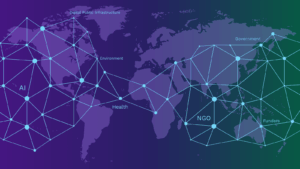Despite their significant benefits, such as boosting economic growth and tackling challenges such as climate change, data and technologies such as AI present new and complex challenges for Africa. Traditional regulatory and governance models are more often falling short to address the complex issues that arise.
Besides developing “traditional” regulations to govern data, such as national data protection legislation, cybersecurity frameworks and national data and digital strategies (see examples: Senegal, Ghana, Sierra Leone, and Kenya), some countries in the region have embarked on a journey to leverage sandboxes to help design policy solutions to address regulatory uncertainty, boost emerging innovation, and build capacities for stakeholders. In the context of the Africa Sandboxes Forum, the Datasphere Initiative team conducted a mapping of these experiences across sectors. The mapping looked into the experimental regulation spaces in Africa and further developed an analysis of their impact in the ecosystem and data value creation. Ahead of the release of an upcoming report which will consolidate and share these findings, this blog shares five preliminary insights and recommendations to realize the potential of sandboxes in the region.
- While sandboxes have primarily been used in the financial sector, experience could be helpful for other sectors.
In Kenya, both the Communications Authority of Kenya and the Capital Markets Authority have implemented regulatory sandboxes to facilitate innovation in their respective sectors. Beyond Kenya, financial institutions in several countries including Ghana, Namibia, Rwanda, Tanzania, Zambia, and Mozambique have all launched sandbox initiatives to promote innovation and foster regulatory agility. These and more sandbox initiatives in Africa have presented a supportive and controlled policy environment that enables financial service providers to test innovative products, services and business. Building onto these developments, there is a substantial opportunity to expand the scope of sandboxes to include operational innovation, addressing challenges beyond regulatory frameworks and applying these practices to different sectors.
- Innovation is the primary driver of sandboxes in Africa but more transparency and participatory practices are needed to enhance their impact.
The mapped regulatory sandboxes exhibit goals and objectives that demonstrate their potential to advance innovation and regulatory flexibility. However, while general information is available online about the sandboxes conducted in a country, extracting insights and learning from a sandbox’s process and journey is challenging. An additional challenge involves contacting actors directly involved in the coordination or development of the sandboxes, which increases the complexity of understanding and learning from these experiences. These challenges point to the need for greater openness, transparency and active communication strategies that support closing the existing information gaps and create safe spaces for stakeholders to engage and exchange knowledge and experiences.
- There are few cross-border sandbox experiences but they can provide inspiration for other efforts.
Ecobank’s pan-African banking sandbox is an interesting cross-border case in the region, and has been operating since 2020. Ecobank’s sandbox offers fintechs the unique opportunity to access the bank’s APIs to develop innovative solutions and test their products in the countries in which Ecobank operates. It presents the innovators with the unique opportunity of accessing Ecobank’s 33 African markets, setting them up for potential growth across the continent. It is also a possibility to explore cross-border data flows, fostering responsible data-sharing and the deployment of new technologies and regulatory approaches at the regional level.
- The impact and results of sandbox deployments need assessment so that best practices can be identified and leveraged.
Several sandboxes in the region have, to date, hosted more than one iteration. For example, Rwanda has had seven cohorts of Rwanda’s Regulatory Sandbox, Egypt has had 3 editions of the Fintech Regulatory Sandbox, and Mozambique has had 5 cohorts of the Incubator Sandbox with a current one having been launched at the beginning of 2024. The various cohorts demonstrate the willingness of various stakeholders to innovate through sandboxes and present an opportunity to draw and share lessons from these experiences across geographies and sectors. As experiences with sandboxes in the region increase, there is a need to learn about the responsible practices implemented, extract insights for other countries and leverage others’ experiences. It is essential to evaluate the extent to which existing sandboxes have generated value and document and foster opportunities for individuals and communities to learn from their experiences.
- More capacity and knowledge would help governments embrace these tools for digital policymaking
Sandboxes are not a magic tool, they are complex to set-up, resource intensive and require regulatory skills and capacity to design and participate in. The success of sandboxes largely depends on the extent to which the relevant government authority has set them up responsibly, adhering to minimum building blocks in areas such as data governance, stakeholder engagement, and transparency. Given the complexities and risks associated with sandboxes, there is a pressing need for additional resources in terms of capacity-building for the regulators to address risks associated with sandboxes and power responsible innovation. It is also essential to develop resources that enhance interoperability of learnings and practices and ultimately foster collaboration across jurisdictions.
To face the complex and fast-changing nature of digital transformation in Africa it’s important that the region has the capacity and confidence in experimenting with emerging technology and regulation. Sandboxes can help provide that space to innovate and create regulatory frameworks fit for the digital age.




